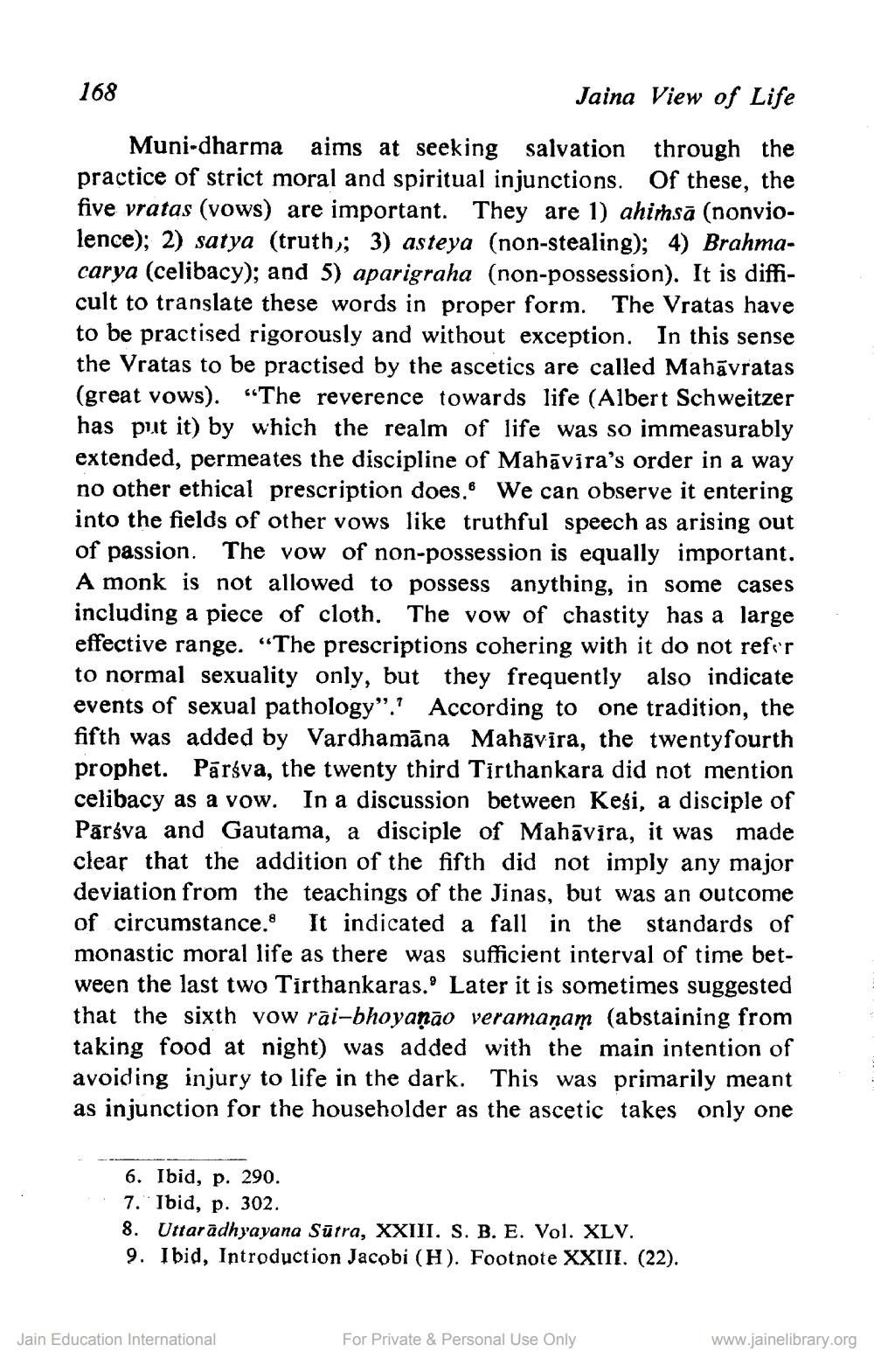________________
168
Jaina View of Life
Muni-dharma aims at seeking salvation through the practice of strict moral and spiritual injunctions. Of these, the five vratas (vows) are important. They are 1) ahimsā (nonvio. lence); 2) satya (truth); 3) asteya (non-stealing); 4) Brahmacarya (celibacy); and 5) aparigraha (non-possession). It is difficult to translate these words in proper form. The Vratas have to be practised rigorously and without exception. In this sense the Vratas to be practised by the ascetics are called Mahāvratas (great vows). “The reverence towards life (Albert Schweitzer has put it) by which the realm of life was so immeasurably extended, permeates the discipline of Mahāvira's order in a way no other ethical prescription does. We can observe it entering into the fields of other vows like truthful speech as arising out of passion. The vow of non-possession is equally important. A monk is not allowed to possess anything, in some cases including a piece of cloth. The vow of chastity has a large effective range. “The prescriptions cohering with it do not refi'r to normal sexuality only, but they frequently also indicate events of sexual pathology". According to one tradition, the fifth was added by Vardhamāna Mahāvīra, the twentyfourth prophet. Pārsva, the twenty third Tirthankara did not mention celibacy as a vow. In a discussion between Keši, a disciple of Parsva and Gautama, a disciple of Mahāvira, it was made clear that the addition of the fifth did not imply any major deviation from the teachings of the Jinas, but was an outcome of circumstance. It indicated a fall in the standards of monastic moral life as there was sufficient interval of time between the last two Tirthankaras.' Later it is sometimes suggested that the sixth vow rãi-bhoyaņāo veramanam (abstaining from taking food at night) was added with the main intention of avoiding injury to life in the dark. This was primarily meant as injunction for the householder as the ascetic takes only one
6. Ibid, p. 290. 7. Ibid, p. 302. 8. Uttarādhyayana Sūtra, XXIII. S. B. E. Vol. XLV. 9. Ibid. Introduction Jacobi (H). Footnote XXIII. (22).
Jain Education International
For Private & Personal Use Only
www.jainelibrary.org




